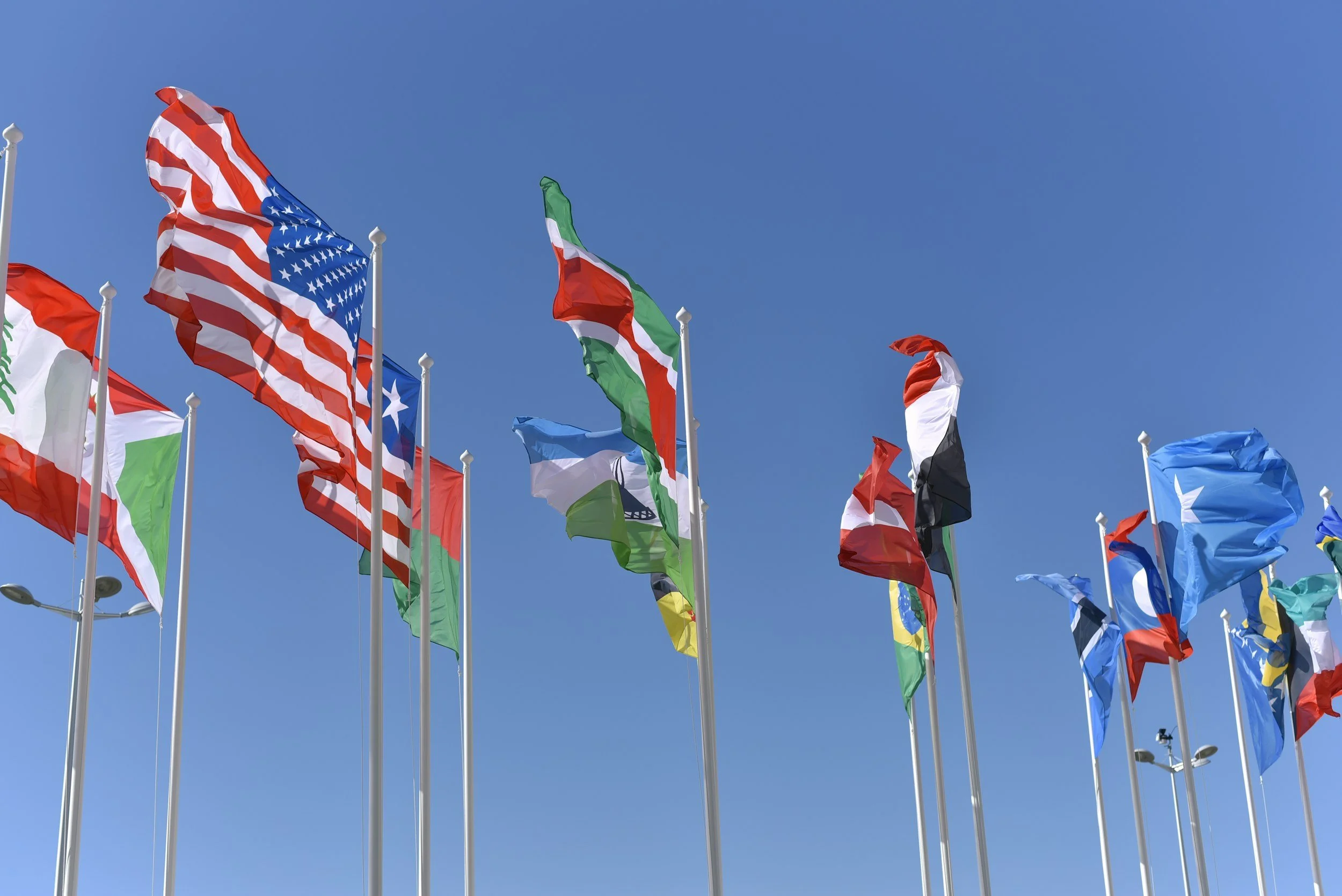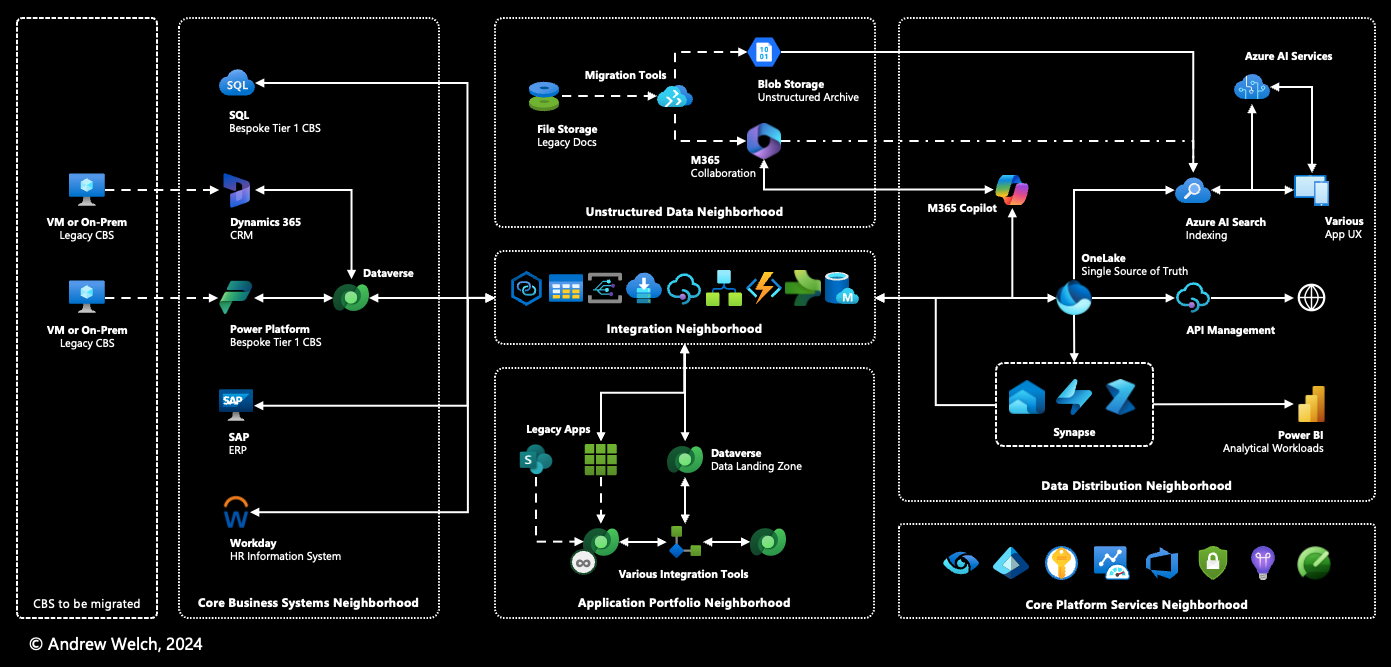
Andrew Welch
Managing Partner | Chief Strategy Officer (CSO)
Boston and Valencia
Andrew serves as the Managing Partner and Chief Strategy Officer (CSO) at Cloud Lighthouse—the company he founded—and as the Executive Director at The Center for Trustworthy AI. He is a globally recognized technology leader, Microsoft MVP (Most Valuable Professional), speaker, published author, and regular writer of essays and papers on cloud technology including the multi-edition Crafting your Future-Ready Enterprise AI Strategy, Ecosystem-Oriented Architecture in the Public Sector, Power Platform in a Modern Data Platform Architecture, The Cloud Strategist, and many others. Andrew works directly with C-level leaders, Microsoft partners, Microsoft product engineering groups, technologists, and investors to guide their Trustworthy AI, cloud strategy, and ecosystem architecture. His previous service includes that as Chief Technology Officer (CTO) at a large international Microsoft partner, global Vice President, Practice Director, VP of Operations, and other tech and business focused roles at various firms based in North America and Europe. He’s guided organizations in over a dozen countries through their Trustworthy AI journey, and has previously led some of the world’s largest Microsoft adoptions on all seven continents (yes, including Antarctica), serving startup to Fortune 100 organizations, public sector agencies, and global NGOs. Based in València and Boston, Andrew makes frequent visits worldwide.
Highlights
Founder, Managing Partner, and Chief Strategy Officer at Cloud Lighthouse
Executive Director at The Center for Trustworthy AI
Service as CTO, global Vice President, Practice Director, and VP of Operations at various Microsoft partners
Lead architect of the AI Strategy Framework, AI Maturity Model, and Ecosysytem-Oriented Architecture
Former uniformed U.S. Coast Guard, “driving boats” and later leading strategic planning
Author of Crafting your Future-Ready Enterprise AI Strategy, Ecosystem-Oriented Architecture in the Public Sector, Power Platform in a Modern Data Platform Architecture, The Cloud Strategist, the multi-addition Power Platform Adoption Framework, and the novel Field Blends
Recipient of global and national-level Microsoft “Partner of the Year” awards
Led enterprise Microsoft adoptions on all seven continents, including:
Microsoft’s AI technologies in complex enterprise settings
Cloud adoptions of Azure, Fabric and the data platform, Power Platform, and Microsoft 365
Complex global data platform development and deployment
App development, migration, and modernization
Microsoft business applications implementations
Papers | Essays | Ideas
Expertise
Topics
Trustworthy AI with an emphasis on AI strategy, maturity, scalability, regulatory and ethics
Enterprise cloud and artificial intelligence strategy in mid-market to enterprise-scale organizations
Ecosystem-Oriented Architecture (EOA) with a focus on architecting across different cloud technology families (e.g., Power Platform integration with Fabric)
Digital and cloud transformation in mid-market to enterprise-scale organizations
Technology trends and market forces in the technology industry globally, but with a particular focus on North America and Europe
Development and growth of technology partner consultancies, new market entry, practice development, etc.
Scaling cloud technologies across organizations in global NGOs, public sector, legal services, and financial services in particular
Technologies
Data Platform technologies including Microsoft Fabric and Azure data services
Composable application platform technologies including Microsoft Power Platform and OutSystems
Business applications including Dynamics 365, and (earlier in career) SAP and Oracle
Cloud infrastructure including Microsoft Azure and (earlier in career) physical infrastructure, networks, etc.
Industry Expertise
Enterprise Non-Governmental Organizations (various organizations within the United Nations system, American Red Cross, and others)
Public Sector (US Coast Guard, US Department of Defense, US Department of Homeland Security, London Metropolitan Police, and others)
Legal Services (Motley Rice, Ganado Advocates, Baker McKenzie, and others)
Financial Services (Evercore, Willis Towers Watson, Liberty Mutual, Progressive, Geico, and others)
Private Equity
Microsoft Partners and IT Services (Applied Information Sciences, HSO, Codec, Damco, Permuta Technologies, and others)
In addition, Andrew has worked with several organization spread across the healthcare, utilities, and manufacturing sectors.
Noted Publications
The Cloud Strategist (2024-ongoing)
Crafting your Future-Ready Enterprise AI Strategy, Second Edition (2024)
Power Platform in a Modern Data Platform Architecture (2024)
Crafting your Future-Ready Enterprise AI Strategy, First Edition (2024)
The Cloud Application Platform Era is a Seismic, Generational Transition for Cloud Technology (2021)
Field Blends (2020)
Power Platform Adoption Framework, Second Edition (2020)
Power Platform Adoption Framework, First Edition (2019)
Microsoft Power Platform and the Future of Business Application Software (2018)
Educate, Innovate, Perform (2012)
A Tale of Two Coasties (2012)








